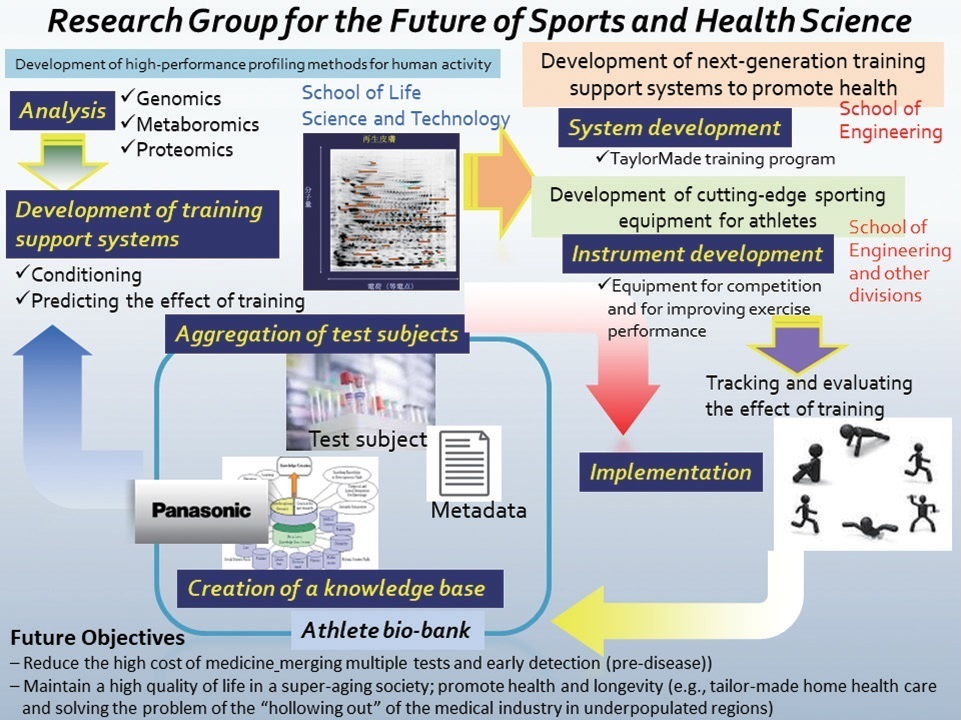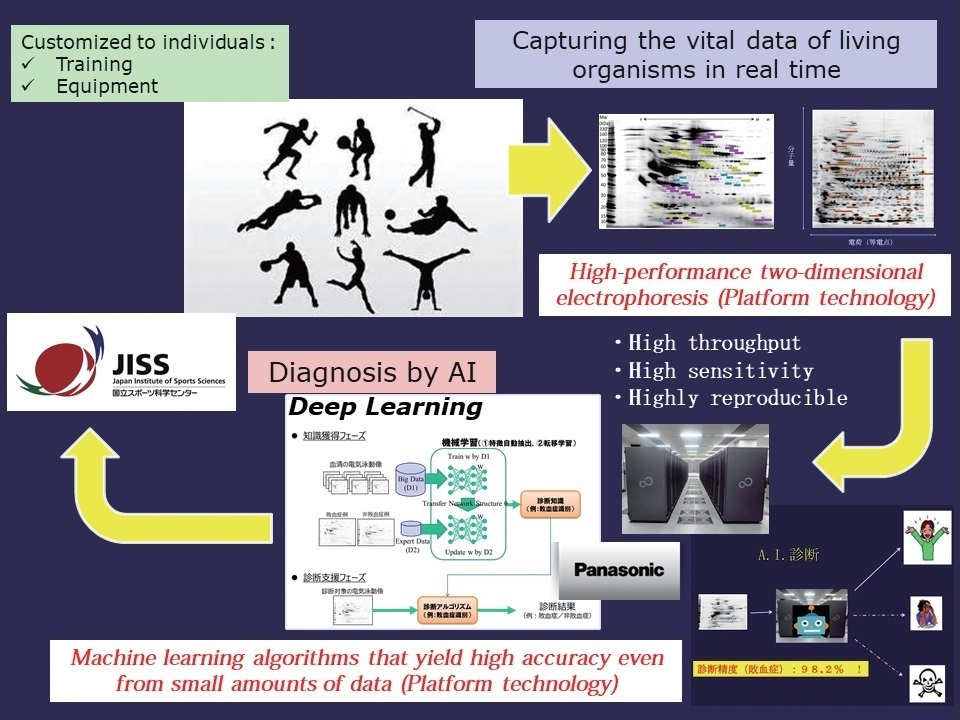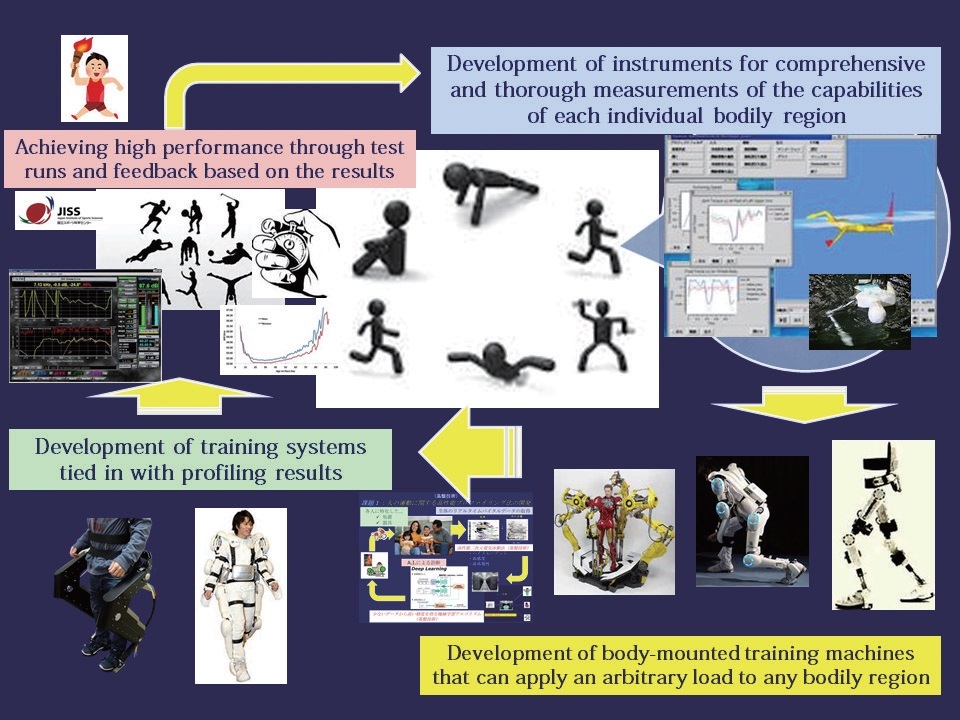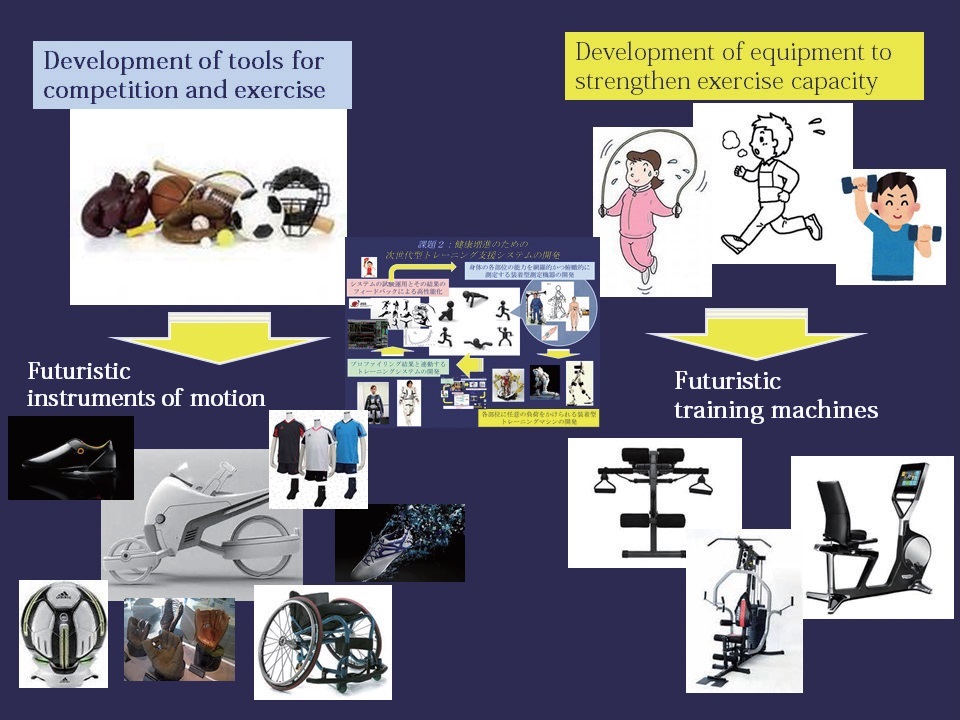Top Page > About

To tackle the two key problems facing modern Japan—high medical costs and a super-aging society—we harness the collaborative efforts of researchers at the forefront of life science and engineering, information engineering, mechanical engineering, electrical and electronic engineering, materials engineering, ergonomics, and sports science who are spearheading initiatives including (a) the design and exploitation of the big data sets generated by high-performance profiling of human motion and other sources, (b) the development of cutting-edge sporting equipment, and (c) the development and practical application of systems for improving exercise performance and health-promotion support systems custom-tailored to the unique needs of individuals; our work not only contributes to the advancement of Japanese sports but also helps to realize a future society in which exercise forms the core of a comprehensive framework of health maintenance initiatives. To get the job done, we adopt an interdepartmental organization structure, reaching horizontally across all of the Tokyo Institute of Technology, in which faculty members specializing in life sciences, information engineering, mechanical engineering, electrical and electronic engineering, materials engineering, and ergonomics collaborate with off-campus researchers specializing in sports science to build a foundational platform for an international research center.

In this project, we develop methods based on biological data, obtained by making full use of methods from the life sciences, for predicting the effect of training without the need to wait for improvements in motion capability to materialize. Our comprehensive control system not only tracks information on athlete training—carried out while gathering data on various measurements of motion capability and biological function—but also uses the latest life-science techniques (omics analysis) to collect information on molecules within living organisms, archiving this information (big data) to build an athlete biobank.

By using AI (or information engineering) techniques to process and establish correlations with the big data sets generated by our research and development efforts, we will develop algorithms that analyze life-science data to diagnose the impact of an athlete’s current training program on future motion capability. As a next step, we will develop algorithms that design custom-made training programs, based on biological data available at the time and any specific goal an individual might have to improve health or motion capability. Ultimately, we will develop training tools that improve exercise performance by connecting to servers on which our previously developed algorithms for program execution are running and applying appropriate loading to appropriate body regions.

By exploiting enormous big data sets archived in athlete biobanks, we will establish systems capable of designing tools optimally matched to the needs of Olympic and Paralympic athletes—both in exercise and in competition—and we will build a framework that enables the development by taking maximal advantage of the latest engineering technologies. With our high-performance profiling methods for assessing the effects of exercise serving as a foundational platform, we will develop next-generation training support systems and cutting-edge sporting equipment with an eye toward ushering in a healthy future society capable of addressing the problems of high medical costs and a super-aging society.
